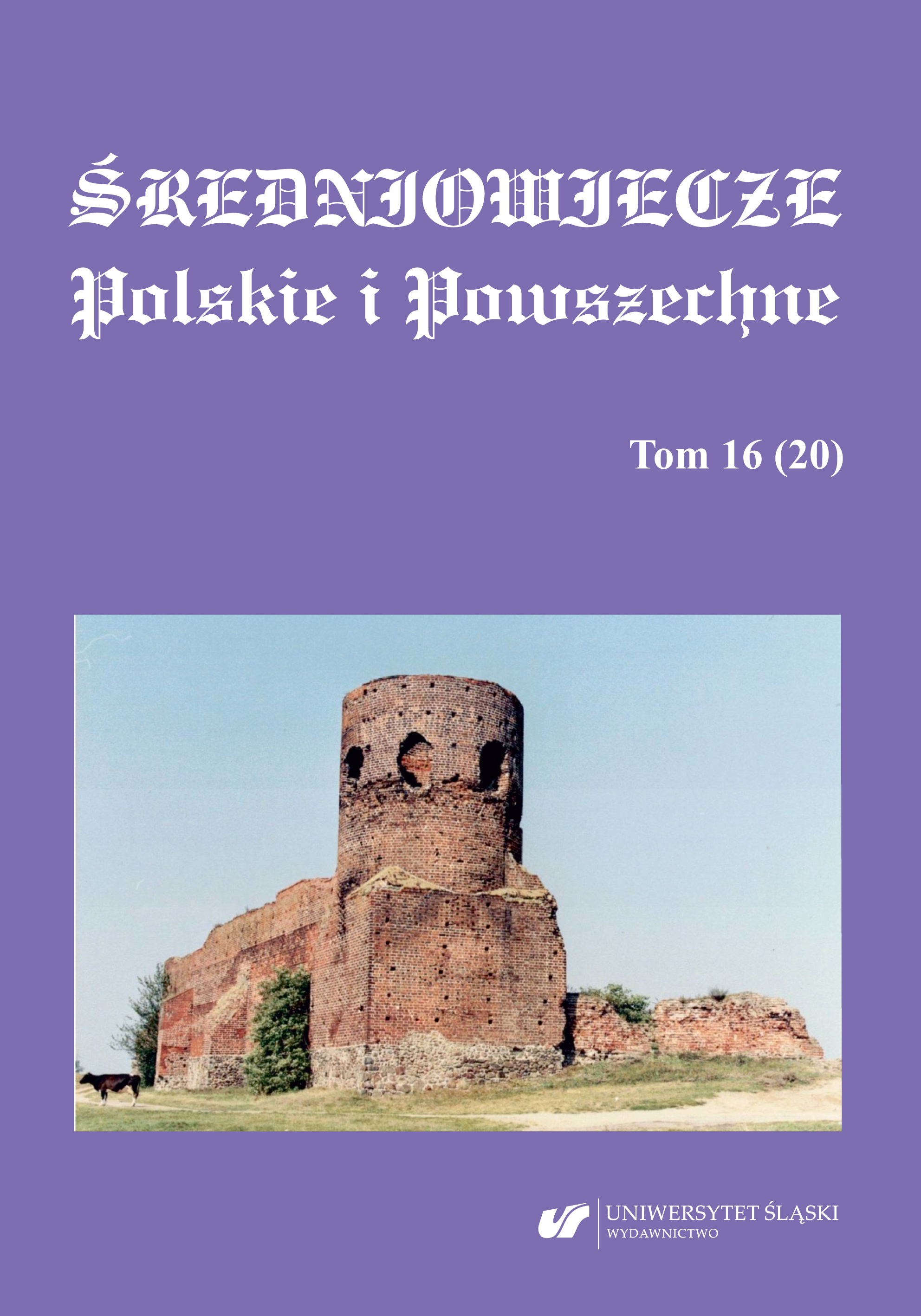Rutheni, Armeni, Iudei w średniowiecznych aktach lwowskiego konsystorza. Przyczynek do badań nad wieloetnicznym społeczeństwem Rusi Czerwonej
Rutheni, Armeni, Iudei in the Medieval Records of the Lviv Consistory. A Contribution to the Study of the Multi-ethnic Society of Red Ruthenia
Author(s): Renata TrawkaSubject(s): Christian Theology and Religion, Jewish studies, Local History / Microhistory, Middle Ages, 15th Century, Canon Law / Church Law
Published by: Wydawnictwo Uniwersytetu Śląskiego
Keywords: 15th century; Red Ruthenia; Lviv consistory; Jews
Summary/Abstract: The article discusses a set of records from the oldest surviving Lvov consistory book from the end of the 15th century, which – in different roles – feature Ruthenians, Armenians and Jews. Only Jews, although not in all entries, appear with an unambiguously identifying predicate – perfidus. Recognition of the confessions of Ruthenians and Armenians is not always so obvious. The small number of mentions involving non-Catholic Ruthenians and Armenians, as well as non-Christians (they represent only a fraction of a percentage of the total 4920 entries) can hardly come as a surprise: it is partly due to the jurisdiction of the official’s court itself, and partly to the social and legal realities of the era. Nevertheless, the micro-histories analysed here allow us to supplement the picture of the multi-ethnic and multi-cultural society of the Lviv metropolis known from other accounts. They contain both an echo of the disputes over tithes from newly-founded land, which the Orthodox were forced to pay, and a confirmation of the practice of rebaptism during not always voluntary conversions, as well as an exemplification of the distrust of Catholics towards Orthodox Ruthenians, whose testimony was questioned due to their ‘schismatic nature’ and the resulting alleged dislike of the Latin clergy. The content of some records confirms that the Armenian religion was considered heretical and pagan: a ‘pagan wife’ fights with an Armenian neophyte over her child; in another case, an Armenian sues a Latin clergyman for calling him a thief, scoundrel, swindler and ‘heretic’. Disputes between Jews and Christians over unpaid debts or stolen property also found their final outcome in the court of the official. One exception was a lawsuit filed by a cleric against an Orthodox Jew for assault and battery. The plaintiff sought not only monetary compensation, but also declaring the Jew ‘excommunicated’. Occasionally, only financial obligations were concluded before the official. The dissenters appeared before the consistory not only as plaintiffs, demanding justice and at the same time believing in the efficacy of the sentence issued by the archbishop’s court, but also as defendants. The consistory records show that the Lviv officials tried to proceed in such cases according to canon law. In doing so, they did not hesitate to summon ex officio to their court Ruthenians and Jews in cases of violations of law and moral order.
Journal: Średniowiecze Polskie i Powszechne
- Issue Year: 16/2024
- Issue No: 20
- Page Range: 83-124
- Page Count: 42
- Language: Polish

